We are proud to work with a variety of clients. If you are reading this, it is because you are in the process of deciding who you should partner with on your next project.
You might be looking to create a new commercial space or renovate an existing one. Or perhaps you’re part of a strata management team and need to tackle repairs or upgrades. Maybe you are a residential client looking to make your home a better reflection of your personality and dreams.
This article is the result of working with hundreds of clients on just as many projects and the feedback we have received. This will guide you through the process of selecting and designing a relationship with your contractor and get you to your desired outcome efficiently and with minimal hassle.
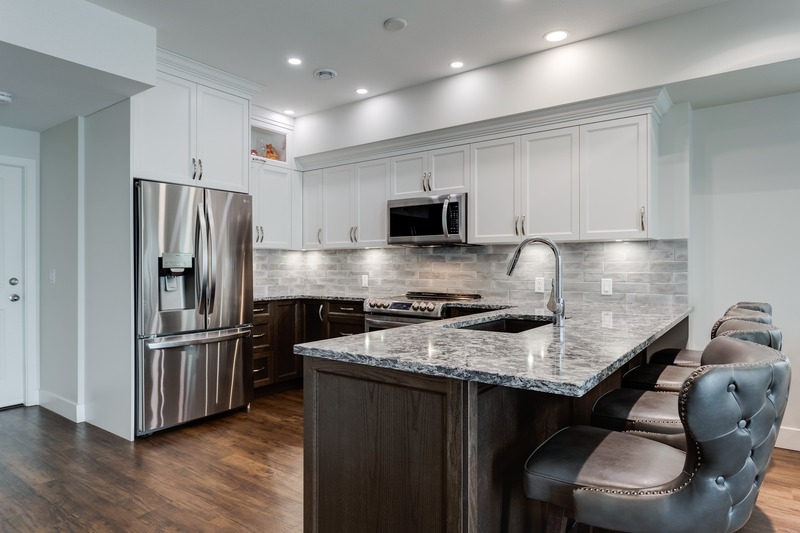
QUESTIONS TO ASK BEFORE YOU START.
Renovating commercial and public and residential spaces can be a challenging task and when not executed correctly, they can result in significant stress for everyone involved. It can cause inconvenience for those who have to be in the vicinity of the renovation, frustration for those responsible for maintenance post-completion, and a disruption of access or service to those who depend on these spaces. To avoid these challenges, we have created a comprehensive list of factors to consider when planning to develop a new commercial space or undergoing a renovation project. Use this information to ensure a successful and stress-free process now and in the future.
READY TO START?
Taking time with these three items will speed up your process and save you money in the planning and design phase of your project.

START AT THE END TO FIND SUCCESS
Function should always be a top priority in the design and renovation of a commercial or public space. While aesthetics are important for attracting and impressing people, functionality is what makes the space usable and convenient for those who will use it regularly. To ensure this, it’s crucial to have a clear understanding of the space’s intended purpose and to put yourself in the shoes of the end user. Before beginning any renovations, take the time to walk through the space and map out how everyday tasks will be performed. This will help you identify any areas where time might be wasted or where the space could be made more convenient for staff or end users.
DESIGN THE SPACE
The design of a space can greatly impact its functionality. A good example of this is the “perfect triangle” in a kitchen, which represents the ideal distance between the sink, stove, and fridge. When these three elements are easily accessible, the kitchen becomes an enjoyable space to cook, on the other hand, when the triangle is out of balance, it can lead to a frustrating experience and getting your ten thousand steps in before you leave the house.
Another great example of this is the Disney, when they first built their park, they marked out all the walkways they thought they would need. They then allowed the public into the space to use it, in just a short amount of time, the guests had carved out new pathways through the park. Disney then went and adjusted the pathway network and installed landscaping. They ensured the end user could move through the space in a way that felt comfortable to them. The end user’s experience should always be at the forefront of any renovation or design project. By taking the time to understand how the space will be used, you can create a more user-friendly and functional environment that will provide a better experience for everyone involved.

YOU ARE THE EXPERT WHEN TALKING ABOUT YOUR NEEDS.
For property owners your space is a reflection of you and your vision, and it is up to you to maintain, utilize and live with it long after the construction company and designers have completed their work. Having a clear vision will ensure that you are comfortable in the space and that your ideas are respected. It will also allow you to present your business or home to the world in the way that you want it to be experienced. Those you work with may not have experience in your specific field, such as a restaurants, and while they may create a beautiful space, it may not be optimized for the best possible service.
WHAT CAN”T YOU LIVE WITHOUT?
To avoid these pitfalls, creating a list of your core needs, such as space, access, and
functionality, will help ensure that the design aligns with your requirements and balances both
form and function. Knowing what you want out of your space is absolutely key ,for the design process, it can be overwhelming and it can become easy to lose your way when that is not clear resulting in the end result can be missed by a few details that end up creating long term inconveniences. With a clear vision from the start, you can make sure you always circle back to those core needs, and marry form and function.

SAVING A DOLLAR TODAY MAY COST YOU TWO TOMORROW.
Time is a precious commodity, and every moment counts. The amount of downtime, the lead-up time until you can open, the time tenants have to endure construction outside their homes, and the time you spend making phone calls all adds up. The materials and finishes you choose can greatly impact your timeline. Custom items may take a long time to order or replace, and their maintenance requirements should be taken into consideration.
For business owners your space is a reflection of you and your vision, and it is up to you to maintain, utilize and live with it long after the construction company and designers have completed their work.
CHOOSE LOW MAINTENANCE PRODUCTS
Maintenance and repairs can make up a significant portion of a brick-and-mortar location’s
operating budget, and cause struggles for a homeowner over time. When things go wrong, it can lead to additional problems, such as safety hazards, loss of access, an unpleasant experience for customers during repairs, and an inability to showcase your brand and space in the best possible light.
Choosing finishes is always a fine balance and it is important to choose quality products from trusted brands. Take the time to ask questions about products. Understanding the demands that will be placed on your space and the items in your space will pay off quickly.
Questions to ask your contractor
Now that you have established your requirements for your space, the next step is to find the right partner to bring your vision to life.
Whether working in public spaces, with the public, and in commercial settings or in a clients home it is a unique challenge that requires a specialized understanding. It’s crucial to collaborate with a contractor who has the relevant experience and knowledge. To make sure you are working with the right fit, consider asking the following questions and evaluating their qualifications before starting the project.
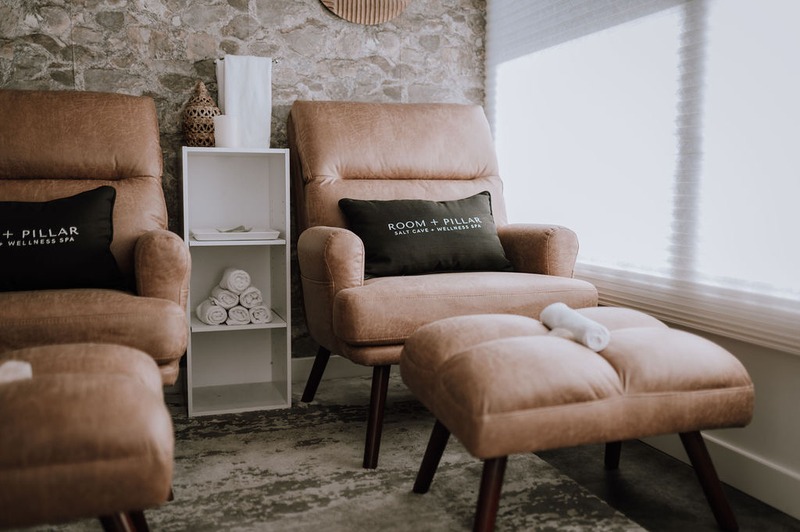
INSURANCE
It is crucial to choose a company that is insured correctly for your space, a commercial project requires a higher level of insurance coverage compared to residential projects. To ensure you are protected and have peace of mind, it is recommended to choose a contractor who has a minimum of several million in liability insurance. Although most businesses carry 1 million, this may not be sufficient in today’s market. Before starting the project, it is advisable to ask for a copy of their liability insurance and keep it on hand for reference. Having this document also protects you, and can greatly expedite getting issues resolved should they arise.
WCB
Strata and commercial spaces pose significantly more risks than most residential settings. To safeguard your property and protect yourself from liability, it’s crucial to confirm that the company you choose has Workers’ Compensation Board (WCB) coverage. The WCB website allows you to easily verify if a company has coverage and if it is in good standing. This protects you the homeowner or the strata from any injuries that occur on the premises during the course of the project.
BUSINESS LICENSE
Every municipality requires a business license for companies operating within its boundaries. In the Okanagan region, some companies may not have a license that covers multiple neighboring
municipalities. It is important to ensure that the contractor you choose has a valid business license for your specific location, especially if you are in an area with multiple communities in close proximity.
CONTRACTS
It is Important to have a clear understanding of the financial agreement before making any payments to a contractor. Make sure that the terms of the agreement, such as the purpose of the payment, how it will be used, and what you can expect in return, are clearly outlined and documented in writing, signed by all parties involved.
Your contractor should have a change order system and contracts with their sub-trades in place. A good contract should include details such as hourly rates, predetermined markups as well as guidelines for communication, site requirements, insurance requirements, and warranty requirements. This protects you and ensures that you are aware of the costs expected or unexpected and limits any discrepancies. It is important to take steps to protect your investment and ensure that all parties involved are aware of the guidelines and requirements for the project.
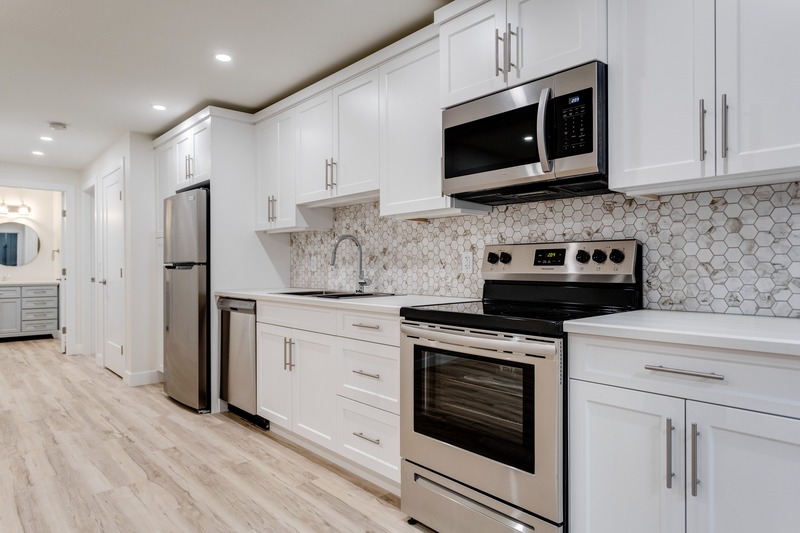
TRUST YOUR INTUITION
Never settle for a contractor simply because you feel obligated to. Instead, choose someone you feel confident and comfortable working with. Your intuition plays a significant role in your decision-making process, so trust it. We live in an informed and savvy consumer world, so don’t sell yourself short in the selection process. If there are questions or information you need to feel secure in your decision, make sure you obtain it. The inability to trust your choice and the contractor will make the entire experience stressful for everyone involved. On the other hand having confidence and trust in your contractor can make these projects a positive experience.
DESIGN YOUR RELATIONSHIP
You have a vision and you have done your research on a contractor. It is time to start construction, setting boundaries and expectations is what will make your project a win. And allow you to sleep at night.
Here are a few items that you will want to address right at the start of your relationship, the longer you wait the harder it is to get things back in balance.
COMMUNICATION
Effective communication is critical for the success of your project. It’s important to establish a clear line of communication and designate a point person for both your contractor and your business. This point person should act as a bridge, ensuring that information flows smoothly between both parties. It’s recommended that the communication structure resembles an hourglass, with one key person representing your contractor and one key person representing your business. from the narrowest point the information flows outward. While there may be times where multiple people need to be involved in the conversation, having a clear line of communication from the outset will help avoid confusion, unexpected costs, and delays.
HOW WILL YOU COMMUNICATE
When deciding on your method of communication, consider the tools and processes that work best for both parties. For example, some people prefer to communicate via text, while others may prefer phone calls with follow-up emails, and some will want email as the primary form of communication. It’s important to determine how you will communicate, including the frequency and method of updates.
Your contractor should also have a system in place for tracking and updating clients on the progress of the project. Consider using collaboration platforms, such as Trello, which allow for multiple conversations and updates to take place in real-time. Additionally, such platforms provide controls to ensure the communication is managed efficiently and effectively and multiple parties can watch from the sidelines without the need to send update emails out to multiple people.
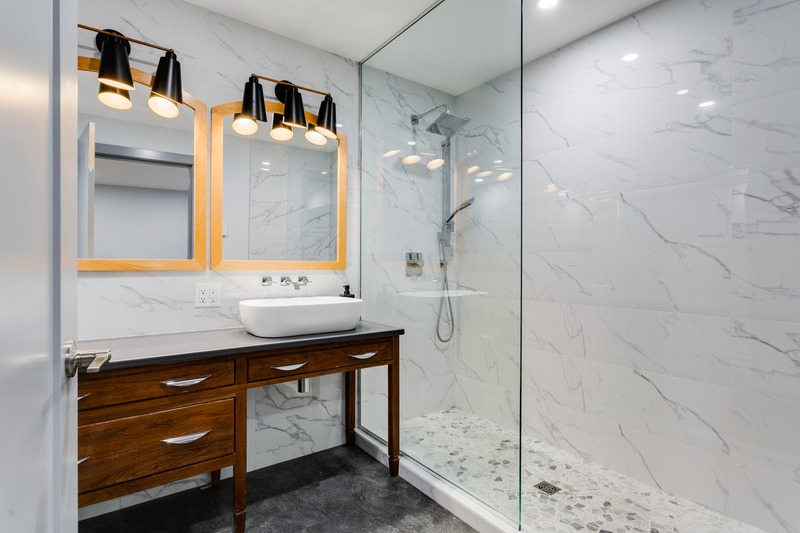
TIMELINES
Establishing clear timelines is critical for building a strong relationship between the contractor and client. It is important for the contractor to provide accurate and realistic timelines, rather than just giving the client what they want to hear. On the other hand, the client should also be
transparent about their expectations and timeline requirements. Contractors are eager to start work and avoid delays as they often result in lost revenue. To ensure a positive and productive
partnership, both parties should have a clear understanding of project goals, the process involved, decision-making procedures and time frames, and how funds are transferred. This information will help the contractor provide the best possible service to the client.
PROBLEMS,
Honesty is the best policy, and we want to be upfront with you. In construction, it’s rare for everything to go exactly as planned. Any contractor who tells you differently, is not being forthright. There are simply too many variables involved such as weather, shipping, product availability, and illness just to name a few. However, a reliable contractor should be an expert in navigating and resolving these challenges.
It’s important to communicate your preferred level of involvement in the project. Would you like to be notified of every issue, or only if there are significant changes to cost or layout, or do you only want to be notified of a problem only once a solution has been found? Clients have varying levels of involvement in their projects, and we respect that. Some want daily updates and a step-by-step account, while others prefer weekly check-ins from a distance. Set the tone for your desired level of communication, and don’t be afraid to share your expectations.
When problems arise please keep in mind that a good contractors ultimate goal is to deliver a
a project that meets your satisfaction, and our success as a contractor depends on it. Our clients are important to us, and we strive to serve you in the best way possible.
LASTLY,
Unfortunately, I hear about negative experiences with contractors frequently in my line of work. However, if you have done your due diligence and selected a reputable contractor, it’s important to establish trust and work collaboratively with them. From my experience, there are many more skilled and trustworthy contractors out there than not.
MOST CONTRACTORS ARE GOOD PEOPLE
The vast majority of business owners run their companies with a commitment to providing exceptional service and a desire to build a positive reputation. They take pride in their work and believe it should speak for itself and generate future business. Remember, contractors also have a lot at stake. They trust that they will be fairly compensated for the work they do. Conversely, a lack of trust and poor collaboration with your contractor will lead to increased stress, difficulties, and possibly even the breakdown of your project.
By following the advice in this guide, you’ll be setting clear boundaries and expectations, which will not only protect you but also help you establish a strong and productive relationship with your contractor.
I know that starting a new project can be daunting, but we’re here to help. We hope his guide helps you feel confident and in control as you navigate the process no matter what direction you choose to move in.
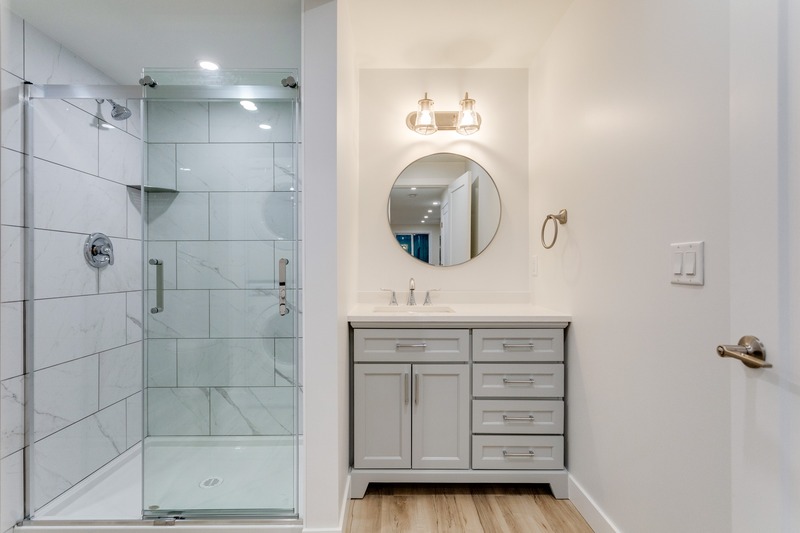
THANK YOU FOR TAKING THE TIME TO LEARN
We hope that you feel better equipped to move forward with your project. If there’s anything else we can do to support you, please don’t hesitate to reach out. Our team is always here to help.
